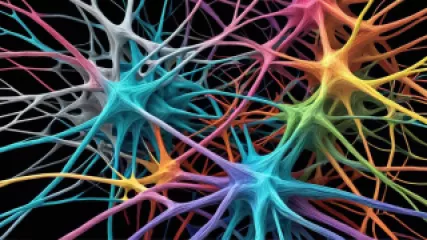My Evolution in Understanding Theories of Intelligence
Throughout my life, I have always been fascinated by the concept of intelligence. How do we define it? What factors contribute to someone being considered intelligent? These questions have intrigued me for as long as I can remember. As I embarked on my journey of understanding intelligence theories, I realized that my perspective on this topic has evolved significantly over time. In this article, I will share my personal experience and the insights I have gained along the way.
The Beginnings of Curiosity
As a child, I was naturally curious about the world around me. I found myself constantly asking questions and seeking answers. It was during my early years in school that I first encountered the notion of intelligence. At the time, it seemed to be solely associated with academic performance and IQ tests. However, this simplistic view did not satisfy my curiosity.
As I delved deeper into educational psychology theories, I discovered that there were various perspectives on intelligence. One of the earliest theories I encountered was Charles Spearman's theory of general intelligence. According to Spearman, intelligence could be measured by a single factor known as the "g factor." While this theory provided a framework for understanding intelligence, it failed to capture the complexities and nuances of human cognition.
Exploring Cognitive Theories
My exploration of intelligence theories led me to cognitive psychology, where I encountered groundbreaking theories that expanded my understanding. One such theory was Howard Gardner's theory of multiple intelligences. Gardner proposed that intelligence is not a single entity but rather a combination of different abilities, including linguistic, logical-mathematical, spatial, musical, bodily-kinesthetic, interpersonal, intrapersonal, and naturalistic intelligences.
Gardner's theory resonated with me because it emphasized the diverse range of talents and skills individuals possess. It acknowledged that intelligence extends beyond traditional academic domains and encompasses various forms of human potential. This realization challenged the narrow definition of intelligence I had previously held.
Another cognitive theory that greatly influenced my perspective was Robert Sternberg's triarchic theory of intelligence. Sternberg proposed three components of intelligence: analytical intelligence, practical intelligence, and creative intelligence. Analytical intelligence refers to problem-solving and logical reasoning abilities, practical intelligence involves adapting to real-life situations, and creative intelligence encompasses innovative thinking and generating novel ideas.
This theory highlighted the importance of context and practical application in defining intelligence. It emphasized that intelligence is not limited to academic prowess but also includes the ability to succeed in everyday life. Sternberg's theory broadened my understanding of intelligence and prompted me to consider the practical implications of intelligence in various domains.
The Role of Experience and Environment
As I continued my exploration of intelligence theories, I came across the concept of emotional intelligence introduced by Daniel Goleman. Emotional intelligence refers to the ability to perceive, understand, and manage one's own emotions and the emotions of others. This theory shed light on the role of emotional awareness and social skills in determining one's overall intelligence.
Furthermore, my journey led me to appreciate the influence of environmental factors on intelligence. The theory of multiple intelligences and other cognitive theories highlighted the impact of nurturing and providing diverse learning opportunities for individuals to develop their potential fully. This aspect reinforced the significance of education, parenting, and social support in fostering intelligence.
Intelligence Coaching: A Personal Turning Point
As my understanding of intelligence deepened, I began to explore the practical applications of these theories. This exploration led me to the field of intelligence coaching. Intelligence coaching aims to help individuals identify and develop their strengths, overcome challenges, and enhance their overall cognitive abilities.
During my own experience with intelligence coaching, I witnessed firsthand the transformative power of personalized guidance and support. Through targeted interventions and strategies, I was able to enhance my analytical intelligence, practical intelligence, and creative intelligence. This personal growth not only boosted my self-confidence but also enabled me to navigate various aspects of my life more effectively.
A Continual Journey
As I reflect on my evolution in understanding theories of intelligence, I realize that this journey is far from over. Our understanding of intelligence is constantly evolving as researchers uncover new insights and perspectives. Moreover, each individual's experience and interpretation of intelligence are unique.
I have come to appreciate that intelligence is not a fixed trait but rather a dynamic and multifaceted concept. It encompasses a wide range of abilities, skills, and talents that interact with each other and are influenced by various factors such as genetics, environment, and personal experiences.
My journey has taught me the importance of embracing diversity and recognizing the value of different forms of intelligence. It has also highlighted the significance of continual learning and personal growth. By fostering a growth mindset and being open to new ideas, we can expand our understanding of intelligence and unlock our full potential.
In conclusion, my evolution in understanding theories of intelligence has been a transformative and enlightening journey. From my early encounters with simplistic views of intelligence to exploring complex cognitive theories, I have gained a deeper appreciation for the multidimensional nature of intelligence. Through the lens of emotional intelligence and the recognition of environmental influences, I have come to understand that intelligence extends beyond academic performance and encompasses various domains of human potential. Personal experience with intelligence coaching has further reinforced the belief in the malleability of intelligence and the power of targeted interventions. As I continue on this lifelong journey, I am excited to explore new perspectives and contribute to the ever-evolving field of intelligence.






